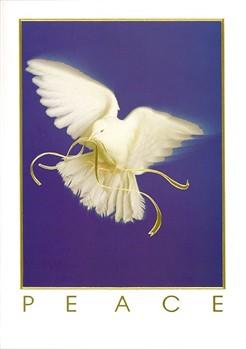I love Peace
By Morton Abramowitz7 March 2007The Wall Street JournalKosovo, still trying to emerge from Belgrade's longand difficult rule and more recently frominternational control, has a long way to go toestablish a viable, stable state. But its slow,halting progress is being impeded by its former Serbmasters, backed in the United Nations by Russia.Once the poorest and mostly forgotten part of theformer Yugoslavia, Kosovo still suffers from massiveunemployment, weak political institutions, and muchcorruption. But it is an increasingly vital place, andits energetic people are looking for a new burst ofactivity when independence finally arrives. Meanwhile, Serbia's glory has dimmed. It could becomea dynamic state, as evidenced by recent market reformsand an uptick in economic activity. But it is nolonger a political leader or the hub of the WesternBalkans, and it is unlikely to resume its formerprominence. For some 15 years its people have enduredSlobodan Milosevic, war, international isolation,declining living standards and Belgrade'smismanagement. And if its leaders persist in fightingto the end to hold Kosovo -- and even after defeat totry to undermine an independent Kosovo -- that willnot change much. Kosovo independence is very muchabout Serbia's future.Persistence seems to be the order of the day inBelgrade. The Serb political class, led by PrimeMinister Vojislav Kostunica, is risking the future oftheir country in a desperate attempt to hold on to aterritory they do not control, for a people who wantno part of Serbia, and whom Serbia does not want aspart of its polity. Indeed Kosovo has already beensevered from Serbia.Mr. Kostunica has spent the past year doing his bestto belittle the U.N. secretary-general' s special envoyfor a Kosovo settlement, former Finnish PresidentMartti Ahtisaari, and to resolutely oppose hisproposal for the final status of the territory. Thatproposal provides for what is commonly called"supervised independence, " heavy protection for anunderstandably frightened Serb population and Orthodoxreligious sites, and an EU mission with significantpower over the new state.Mr. Kostunica also spent the year trying to delaymovement on Mr. Ahtisaari's proposal, hopeful thatdelay would enable him to generate support for Serbiansovereignty in a wavering Europe and perhaps sparkviolent behavior from the Kosovo Albanians. Inpursuing delay, Mr. Kostunica crafted and won (in amuch questioned referendum last October) a newconstitution whose preamble proclaims Kosovo aninalienable part of Serbia. He recently threateneddire if unspecified action against any staterecognizing Kosovo's independence. And now there iseven much talk in Belgrade of partitioning Kosovo,which the West has resolutely opposed.Mr. Ahtisaari is expected make his recommendations forKosovo's final status this week, which the U.N.Security Council will take up later this month. TheU.S. and EU countries will accept them and supportrepeal of its resolution 1244 of 1999, that providesfor Serbia's sovereignty over Kosovo. This will ineffect endorse Kosovo's path to declaringindependence. Mr. Kostunica is pinning his hopes onRussia vetoing any such action, thus leaving 1244intact.Moscow presently asserts that both parties must agreeto any Kosovo settlement, in effect endorsingcontinued Serbian sovereignty over Kosovo. Russia,which has contributed little to the Balkans the past20 years, is threatening to upend the settlement longsought by the West, which has invested enormousresources to bring a measure of stability to the area.Whether in the end Russia vetoes a new U.N. resolutionremains to be seen. Much depends on the determinationof the West to proceed. If the West can not get theRussians to at least abstain on a new resolution, anessentially regional issue becomes a far messierproblem with wider geopolitical concerns. In thatevent the U.S. and EU countries will have to find thefortitude to recognize Kosovo's independence withoutthe stamp of legitimacy of a new U.N. resolution.The Security Council faces a dilemma. Breaking up acountry is a rare event. A number of countries want alegal basis for Kosovo independence, and may proveunwilling to recognize an independent Kosovo withoutone. But many countries also realize that Serbia haslost Kosovo, and that Kosovo independence is essentialto reduce uncertainty in the Balkans and remove amajor cause of instability. Moreover, the chance ofboth Serbia and Kosovo to prosper and be integratedinto the EU requires a resolution of Kosovo's status.Nor does independence necessarily end the Kosovoproblem. Kosovo is not Montenegro, whose separationfrom Serbia was also fiercely resisted by Mr.Kostunica. Many Serbs have a deep emotional attachmentto Kosovo which is easy for foreigners to discount.Serbia's leaders have to decide whether they want toaccept the verdict of the West, to cooperate inshaping a new Balkans, including an independentKosovo, and to pursue seriously membership in the EU.Or do they search for every means to destabilize thenew Kosovo and their neighborhood? The answer is notapparent. Serbia's progress lies in its leaders'hands.Mr. Abramowitz, a former U.S. ambassador to Turkey, isa senior fellow at the Century Foundation.
11 March 2007
Subscribe to:
Post Comments (Atom)

No comments:
Post a Comment